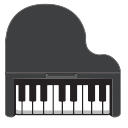Sound recording in the studio
When recording in studio conditions, there is one most important rule – complete trust to the sound engineer. If you are not sure which sound you need, or if you have any problems, consult with the sound engineer. His goal is to get an excellent result that you like. Therefore, he not only can, but also need to ask for advice.
All your wishes are better to express right away, as the foundations of the sound of the entire song are laid just at the stage of sound recording. And many nuances will be difficult to correct during the information or mastering.
After setting up and connecting the instruments, the import of phonograms into the project is completed through the direct entries. Below are a few simple recommendations that will help you during this critical process.

Comfortable monitoring
First of all, it is necessary to ensure comfortable monitoring. You will receive a phonogram or sound of your instrument under the metronome in the headphones or monitors.
Try playing / singing to see how comfortable you are with it. Pay attention to the overall volume of the sound in the headphones, make sure that the balance between the accompaniment volume and how you hear yourself or your instrument is comfortable. The feeling of listening comfort is not an exact concept, and it can be different for different people.
It happens that the performer does not get into the note during the recording. This may be a consequence not of his poor singing, but of the fact that he simply hears himself badly.
In addition, do not forget that the sound in the headphones and the sound at the output will be different. The main task of monitoring is to help you not to go astray and fall into tact. Therefore, do not evaluate the sound of your voice or instrument by the sound that you hear in your headphones.
And, by the way, do not forget to transfer your phone to silent mode. Better shut it down altogether. Otherwise you just run the risk of spoiling an excellent take.
Tool position
Monitor the position of the instrument (or head, if you are singing). It should not vary with respect to the microphone. The sound engineer will tell you about it. Musicians often fall into captivity emotions and begin to move intensively in the performance process. This in itself is good, but can negatively affect the balance of sound.

Breaks in work
If you can not cope with some difficult moment, do not get hung up on it. Start recording other material or just relax.
By the way, with long recording, when, for example, a group writes a track or several tracks throughout the day, it’s worth taking breaks from time to time. This will allow the musicians to relax, and the sound director – to preserve the objectivity in the evaluation of the recorded material, since his hearing can “blur” with prolonged continuous listening.
There is nothing so complicated in the studio sound recording. You just need to listen to the sound engineer, ask him for advice, and then the recording process will not cause you any difficulties and negative emotions, and the final result will exceed all expectations.
